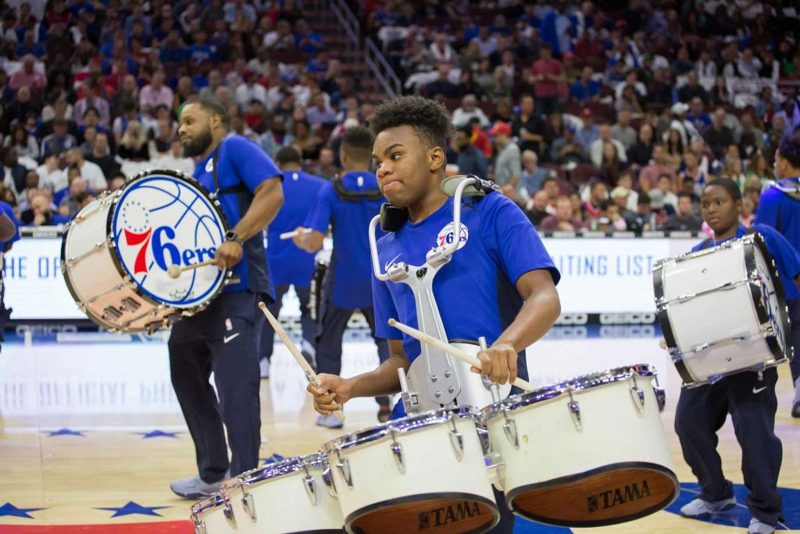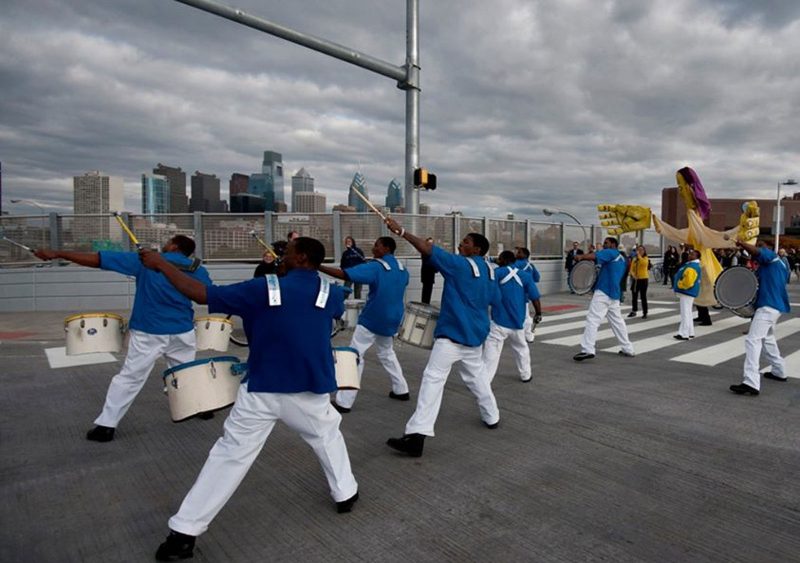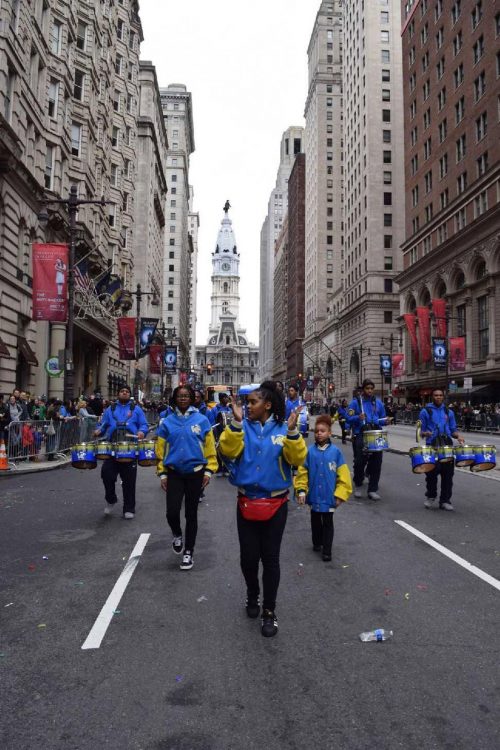
The first time I saw a drum squad perform in Philly was at a music festival in the gymnasium of the First Unitarian Church. Most of the other acts that night consisted of guitar driven music, so when a drum squad called Positive Movement began to perform it felt unique. They weren’t tethered to any amplifiers which allowed them to move organically through the space as they rallied the crowd around them. The group leader started a chant as the squad began to beat their instruments with militaristic precision. However, what impressed me the most was the three little kids marching alongside the other adults on the team. They couldn’t have been any older than thirteen, yet they performed the complex steps and beats with confidence that an observer would expect from a seasoned professional. And, what’s more, they were having a blast.
“It’s all about the kids,” says Antoine Mapp, leader of the West Powelton Steppers & Drum Squad (the official drum team of the 76ers). I got the chance to talk with Antoine and he told me about the effect that Philadelphia’s drum squads have on our city’s youth.
The West Powelton Steppers and Drummers was started in 1991 by Antoine’s grandmother and has been around for twenty-seven years. There is a rich history behind each drum team in Philadelphia, and Antoine is inspiring the next generation of drummers just as his grandmother inspired him.
“The idea is to help kids from different communities stay off the street,” Mapp told me, “to give them another activity besides selling drugs and making babies, which I understand. Where I grew up you couldn’t go six blocks over without running into trouble—now mind you, in my neighborhood there were no basketball courts, no after-school programs, no music programs, so the only thing that we had was the drill team. The drill team helped to keep us focused because there was drug dealing and prostitution on every corner. We were so focused on performing and practicing and marching that we didn’t even worry about all the stuff that was going on around us. That’s what kept me alive and out of a jail cell, and that’s what kept me from being under the grave. And now I’m paying it forward. I’m trying to save as many lives as I can.”
Not only do these kids need constructive activities to focus on, but they also need role models to look up to. This is one of the most beneficial aspects of drum squads according to Antoine.
“I come from where you come from. I can talk like you. I can walk like you. I also know how to go and put a suit on, and go and flip that switch and become corporate. My father left when I was three years old. I remember the day that he left me. A lot of these kids went through the same thing, and I’m not gonna let the excuse that their dad wasn’t in their life weigh them down. I’m like big bro or a father figure to them. I’m letting them know that there are people who do care.”

By interacting with adults who have gone through similar circumstances, these kids learn that where they come from does not have to determine who they become. They see this exemplified in their teachers, and, after practicing their steps and honing their skills, they see it exemplified in themselves as well. “The majority of the kids I get have never learned how to play drums. They don’t have any confidence in themselves, but suddenly that changes. You see them start getting better at performing and the crowd is cheering for them. You can tell in the way they talk and the way they act and how outgoing they become that I know I’m doing my job. It builds character. It builds confidence.”
Our communities need positive engagement like the drum corps provide. Philly’s drum culture should be celebrated, yet in 2017 Councilman Mark Squilla proposed a public drumming ban (a ban that didn’t go through thanks to public outcry). The proposal was mainly focused on noise complaints around Center City where buskers play on street corners, but it did not seem to take into consideration the many well-disciplined drum squads who perform in public professionally. Far from buskers, these drum squads play with a level of coordination that you would expect to find in a concert hall. They embody the soul of Philly as drummers from an older generation move in sync with members of the next.

Samuel Brown is a writer and musician living in Philadelphia. He has received his BA from Skidmore College where he studied English and Studio Art. He currently works at the Fabric Workshop and Museum.








